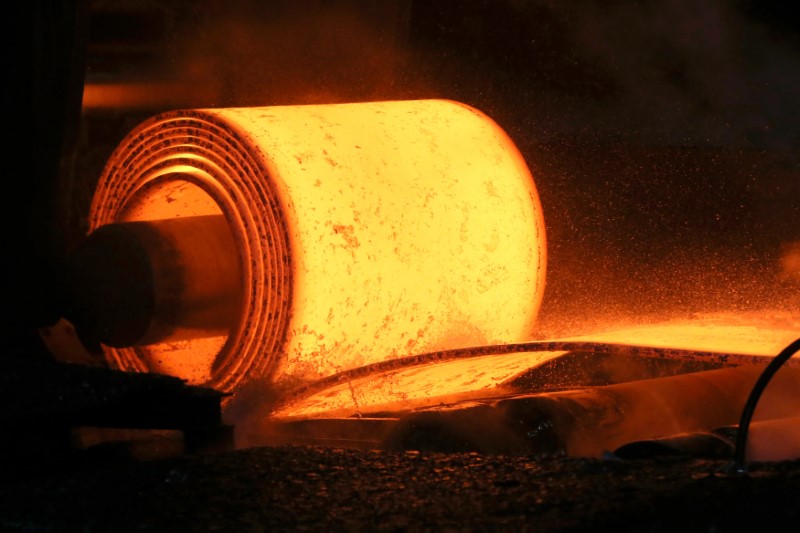WASHINGTON (Reuters) -The American Iron and Steel Institute (AISI) on Tuesday welcomed the Biden administration’s commitment to address the problem of global excess steel capacity together with the European Union, but warned that securing meaningful change would take time.
The group’s president, Kevin Dempsey, said it was essential that Washington maintain “strong and effective trade measures to prevent surges in steel imports from around the world that could quickly undermine the U.S. industry and our national security.”
The comments came after a U.S.-EU summit at which the two sides agreed to suspend tariffs in a pair of cases involving aircraft subsidies, saying the move would strengthen cooperation in other areas, including steel and aluminum.
The EU had pushed Washington to agree to lift tariffs on steel and aluminum imports by Dec. 1, but U.S. officials refused to commit to that deadline, mindful of the complexity of reaching a broader agreement on the long-simmering dispute.
U.S. and EU officials did agree to discuss the 25% steel and 10% aluminum U.S. tariffs imposed three years ago under former President Donald Trump, before the end of the year, and to address excess market capacity, notably from China.
U.S. officials face conflicting demands from U.S. steel industry groups and unions, who want the tariffs to remain in place, and U.S. manufacturers who use steel and aluminum, who want them lifted.
“The 232 tariffs on steel and aluminum should have never been applied to our allies in the first place. They have only served to increase the costs of goods manufactured in America compared to overseas competitors,” said the Coalition of American Metal Manufacturers and Users (CAMMU).
The steel producers’ Dempsey said the market situation was changing constantly, and it would be difficult to find a bilateral solution to what was essentially a multilateral problem, especially given concerns that a drop in tariffs could trigger import surges.
“We’re pretty much at the beginning of this process – the U.S.-EU steel discussions,” he said. “The real work has yet to be done.”
(Reporting by Andrea Shalal; editing by Richard Pullin)

























